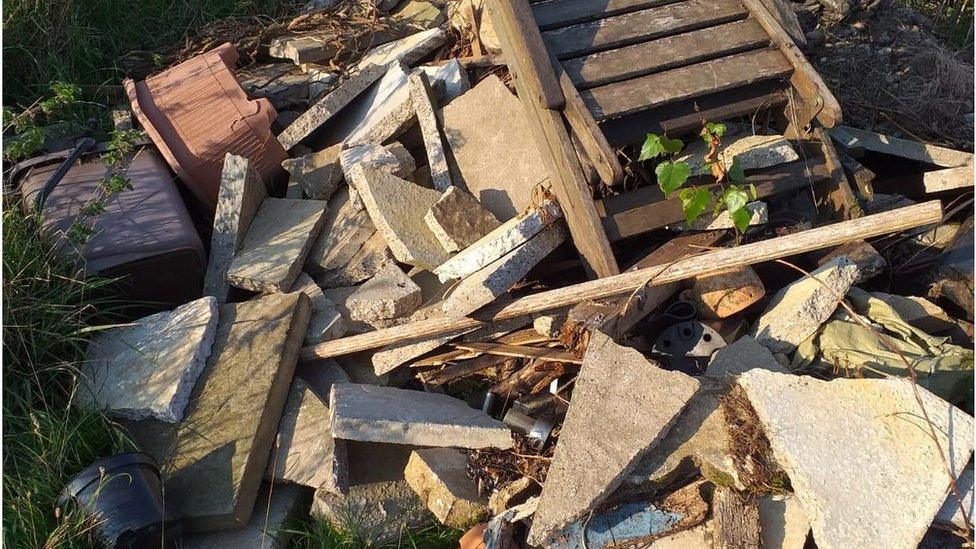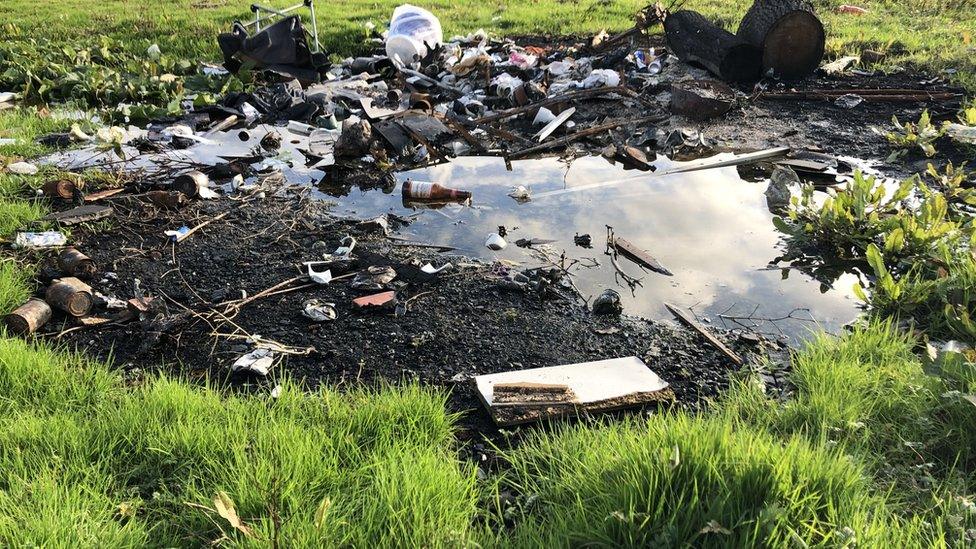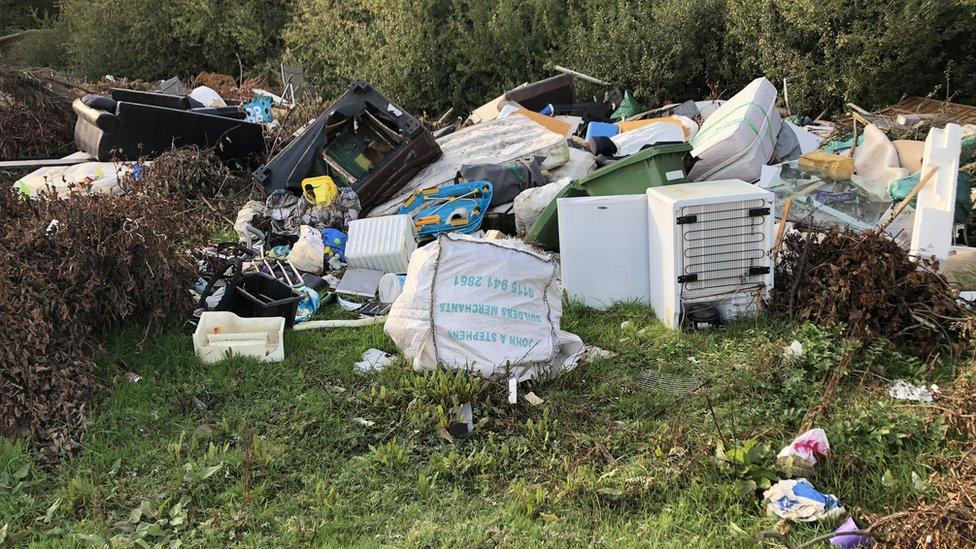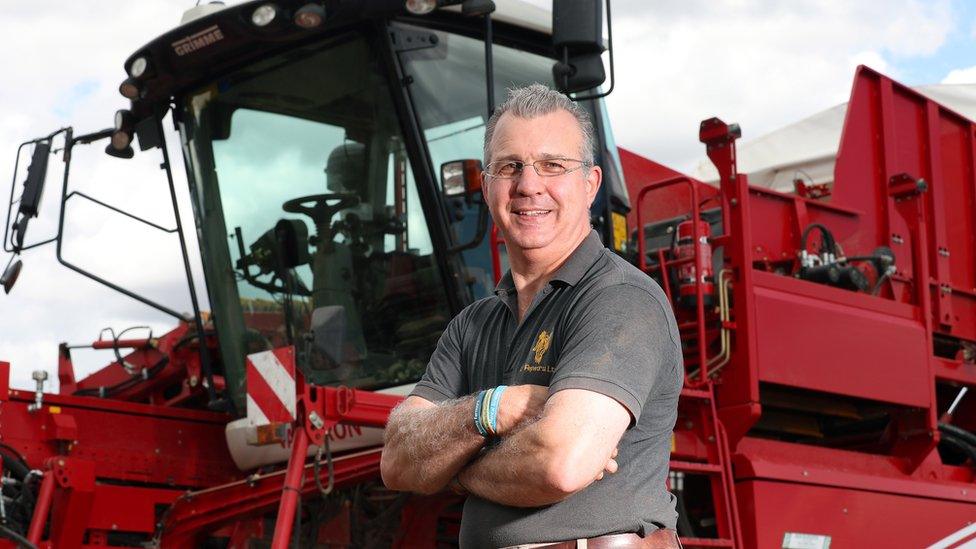Northamptonshire scheme will help landowners clear fly-tipping
- Published

The new scheme aimed to help landowners with the cost of removing fly-tipping and introduce methods to prevent incident reoccurring
A scheme to support landowners with the cost of removing fly-tipped waste from their land is to be introduced in Northamptonshire.
The plan is the brainchild of the county's police, fire and crime commissioner, Stephen Mold.
The National Farmers' Union (NFU) previously said fly-tipping was on the increase and was exacerbated by Covid lockdown measures.
Mr Mold said landowners had faced "escalating costs" to clear land.
The latest government figures show incidents of fly-tipping dealt with by local councils reached almost one million in the year to March 2020, external.

The industrial waste had been dumped at Pineham Locks by a group of travellers
The NFU said it believed the number of incidents increased during the coronavirus lockdown, external.
In Northampton, the local authority paid for an operation to clean-up industrial waste at Pineham Locks.
The clean-up only happened three months after the waste had been dumped and the cost will eventually be charged to landowners there.
Local authorities do not remove fly-tipped waste on private land, which is the responsibility of the landowner to clear.
Under the new scheme, farmers and private landowners can apply for grants of up to £1,500 towards the cost of having waste cleared away and to support them in putting prevention measures in place.
The new scheme is aimed at preventing future incidents like that by providing landowners with grants and encouraging early-intervention to prevent crime and assist in tracking down people who are fly-tipping.
It was originally introduced as a pilot scheme in the East Northamptonshire and Daventry districts, but it will now be rolled out across Northamptonshire.

It took three months for the waste at Pineham Locks to be cleared - something this new scheme aims to tackle
During the pilot scheme, five people received sums ranging from £500 to £1,500.
The police commissioner said he would work with Northamptonshire's two new unitary councils to take the scheme forward.
"I am often contacted by people who have been repeatedly targeted by organised fly-tippers," said Mr Mold.
"They face escalating costs of clearing their land and it also has an enormous impact on our environment and our ability to enjoy it."

Find BBC News: East of England on Facebook, external, Instagram, external and Twitter, external. If you have a story suggestion email eastofenglandnews@bbc.co.uk, external
- Published16 April 2021

- Published8 January 2021
